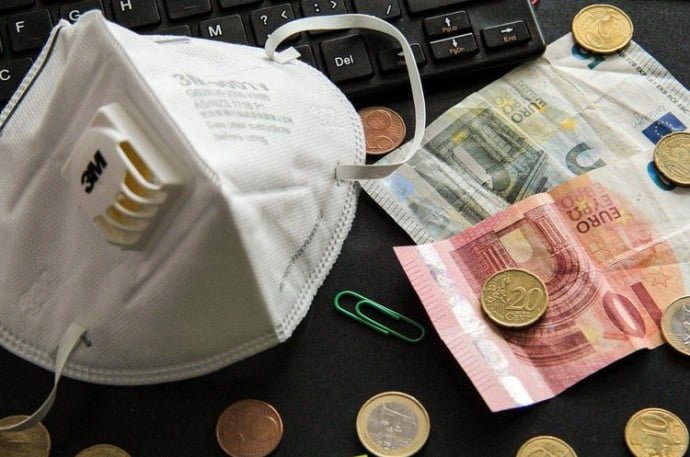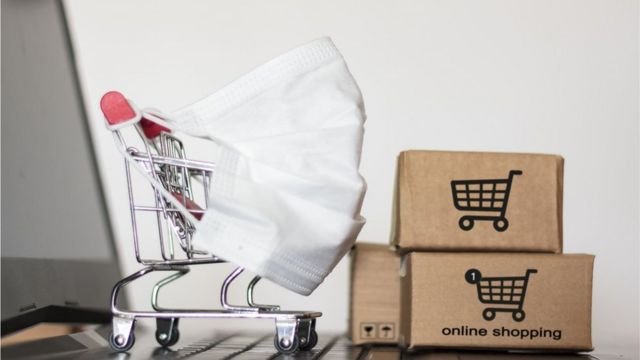The proliferation of COVID-19 is changing people’s behavior and it is important for brands to understand how to stay relevant to consumers in an unstable world.
Coronavirus challenges brands. As consumers take protective measures, their concerns about their health and financial well-being, changing their behavior will continue to have a huge social and economic impact.
Context of the decision: from stable to changing
When we perform familiar actions, we live in a world of confidence with established traditions and procedures that allow us to simplify the decision-making process. When we realize that these actions work, our behavior becomes more unconscious and automatic. Learning to ride a bike is initially conscious, but as it is mastered, our actions become routine – we no longer think, but simply do.
Marketing often aims to influence a person’s “fine-tuning” to reinforce or gradually shape automatic behavior. This works well provided that the context, overall structure and logic of the options available to us are generally stable.
The coronavirus caused a shock, creating an unstable environment around the world. People adapt to a changed life, a new environment and making different (NOT routine) decisions.
But the foundation of this behavior is fundamentally new. Our reactions in “current” times cannot be based on automatism, because it is based on the experience of similar past situations, which no longer exist. In these volatile conditions, brands play a special role. Now we need to think about brand management in terms of changing context and changing behavior.
Brand management in the “current” times of behavioral change
As the context and model in which people live changes, brands must ask themselves how to respond to them and how to increase their value in light of this new reality. At the moment, many brands are not at all sure whether they need to respond.
There is a healthy fear that such brands may encounter public condemnation due to the desire to profit from the crisis. Even companies that supply health products are reluctant to mention the coronavirus because they do not want to be suspected of benefiting from the crisis. This is really extremely important – to avoid unethical use of crisis topics. However, brands can play a more active role in customers’ lives when a changed context forces people to change their behavior to stay healthy.
Brands can use a variety of ways to influence decision-making to help consumers adapt to new contexts and support behavioral change.

The most important thing is to be real and invest in the relationship with the consumer
Brands may find it right to go into austerity in difficult times to quietly wait for the “storm”. But we have a unique period in which brands can gain the trust of consumers by maintaining their presence and giving a valuable sense of support in an unstable situation of heightened anxiety. For example, some online learning platforms have made their quarantine courses free for schoolchildren and adults.
Be reliable and positive
Brands can strengthen relationships with consumers if they become a reliable source of reliable information and focus on the consumer in unstable times. Here are some examples of brands that have taken the initiative to help stop the spread of the virus or avoid its other negative effects.
In the UK, Lush invites people to go to their stores to wash their hands.
In India, we saw the Lifebuoy communication (antibacterial soap from Unilever) regarding the observance of personal hygiene rules, the feature of which was the call to use any soap, including competing brands. The same Lifebuoy in Vietnam released a commercial where children are taught to properly wash their hands in a dance of six movements, plus additionally installed hand washing stations on the street.
Amazon is actively working to eliminate speculation / pricing.
In an age when people are increasingly trusting brands, not just social and community organizations, in social matters, a crisis situation can have a very positive effect on the brand if communication is built wisely.

Demonstrate empathy / create comfort
Louis Vuitton posted a heartfelt message to his Chinese clients on social media such as WeChat and Weibo: “Every paused trip will eventually resume. Louis Vuitton hopes that you and your loved ones will be healthy and safe. “This message with the right tone corresponds to the positioning of the brand, in the product line of which there is a premium baggage.
Help people have a good time and create new home habits
This is a promising area where brands can help people make the most of the time they have to spend at home and stimulate new habits, helping them feel that time is being spent. Many people are forced or choose to stay at home for the duration of the coronavirus, so building positive associations / identities around this new “home routine” will help create motivation to replay them after the isolation is over.
Move online
We expect the trend of transition to alternative communication online to continue. In China, online car sales rose in the first weeks of the crisis, despite a general decline in car sales. We also see not only professional meetings and exhibitions moving online, but also how many museums have begun to create online spaces and virtual rooms to showcase their exhibits. Alibaba organizes concerts without meetings, where they broadcast new content.
Recognize and confirm new social norms
When trying new behaviors, people can often feel a little insecure, as if they are the only ones doing so. This feeling of marginalization can be an obstacle to change, so it is important to help them and show that such a course of action is approved and many act in the same way. If people feel that there are others who behave similarly, they are more likely to continue to follow new behavioral patterns.
Conclusion
People are adaptive by nature and make decisions depending on the context. Consumer response to the coronavirus is an example of the extreme situation in which this occurs. When context and behavior change, we are deprived of our routine rhythms, we turn on awareness.
Undoubtedly, we make decisions in an unstable, “current” time, which makes us more likely to pay attention to brands that want to interact with us properly and create a sense of security and comfort.
Wise brand managers who will work to attract consumers can come out of this difficult period of behavioral change with a stronger brand that will gather around itself even more loyal and loyal supporters. Therefore, when everything returns to normal, such brands can grow steadily.

